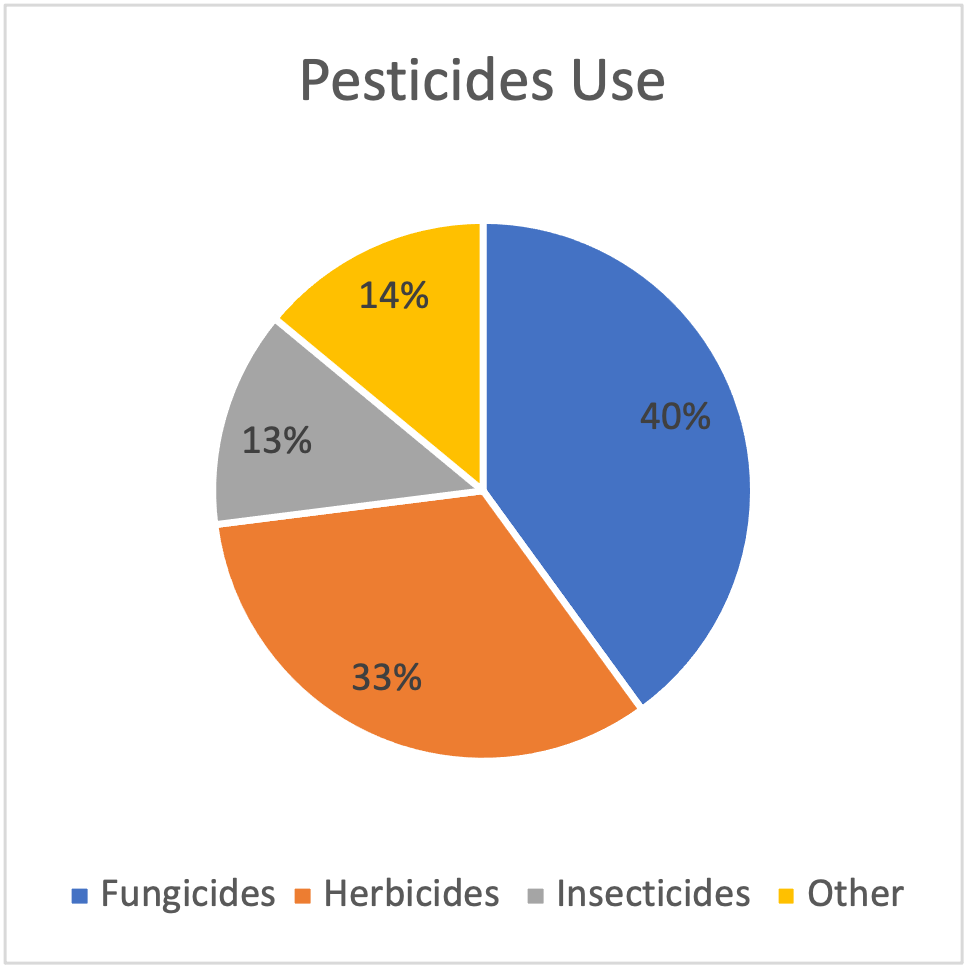Possible Effects of the Green Deal on Tomato Production in Portugal

In the past 25 years, there has been a 55% increase in tomato production in Portugal going from 900,000 metric tons in 1996 to 1.4M metric tons in 2020. Tomato production has grown at an average annual rate of 1.8% per year, which is equivalent to 21,000 metric tons per harvest.The tomato industry in Portugal has been very productive and stable for the last 25 years, which is why tomato producers, along with other industry farmers, were alerted when the Green Deal was approved.
The Green Deal is the European Union`s roadmap to become the first climate-neutral continent by 2050. By adopting the Green Deal enforced by the European Commission, the EU is expected to achieve a better balance between nature, food systems, and biodiversity with the hopes of protecting the population's health and wellbeing. Until 2030, it plans to reduce the use of pesticides by 50% and reduce the use of fertilizers by 20%. Additionally, the EU plans to increase the share of organic farming from 8% to 25%. These strategic goals worry the farmers because of the effects they might have on their risk control and their production.
Risk factors affecting tomato production
In 2021, there was a big burst of Tomato Brown Rugose Fruit Virus (ToBRFV). This virus caused a big threat to tomato crops around the world causing damage to commercial varieties and up to a 50% loss in yield. In Portugal, ToBRFV was first reported in the seeds of tomatoes in August 2021 in the regions of Algarve, Tavira, and Faro.
As ToBRFV, there are other existing risks that could affect tomato crops including insects, nematodes, and mite pests. Growers have to use different pesticides to prevent and reduce the pests on their crops. 40% of the pesticides used are fungicides, 33% are herbicides, 13% are insecticides and 14% are a variety of others.

Source: Sustainability Community, Eurostat
If pesticides are not utilized, it can affect the crops in many different ways, which is why tomato growers are worried about the effect of the Green Deal on their production.
Negative effects of fertilizer and pesticide reduction on tomato crops
Portuguese tomato producers are preparing for future crops, wondering how much the Green Deal can affect their productivity in the short and long term. The reduction of pesticides stipulated on the Green Deal can affect the tomato crops greatly due to an increased chance of pests and a yield reduction.
Herbicide reduction could be possible without a major effect on production if replaced with mechanical weeding and other agronomic practices. These are effective, but not as efficient as herbicide usage. On the other hand, fungicides are essential for the control of fungal plant diseases which constantly emerge due to globalization and environmental change. According to previous studies done, reducing fungicide use by 50% could cause a 5.1% increase in disease incidence.
Since tomatoes are sensitive crops, the general reduction of pesticides can decline tomato production by 10% to 20%. Fertilizer and pesticide reduction can also result in lower quality products by reducing the tomato sizes and affecting the peels. Lower-quality foods are not as valued to consumers, which means tomato growers will have to sell their products at a lower cost. According to the demand forecast, the demand will stay the same, lower production yields will affect the trade balance because there will not be enough products to export and for local consumption which will cause a price increase.
Not only tomato crops will be affected by the Green Deal. According to a study made by the USDA, the adoption of the measures in the European Union will affect the general production by about 12%. This will tighten the European Union´s food supply resulting in price increases. There are many predictions on what can happen due to the Green Deal implementation, which is why farmers are worried about the future of their crop. It is important for farmers to strategically plan their chemical reduction to affect their crops as little as possible.
Sources
Agriculture Studies. Why are the United States so afraid of the Green Deal?.
Department of Primary Industries and Regional Development. Tomato pests.
Forbes. EU Plans To Reduce Pesticides By 50%.
HortiDaily. A year of ToBRFV.
HortiDaily. First report of tomato brown rugose fruit virus in Portugal.
Sustainability Community. Reducing the use of pesticides by 50%, an achievable goal of the European Green Deal?.
Tomato News. Portugal: quality comes at a price.
Tomato News. Portugal: review of twenty-five years of tomato harvests.
Tridge. Intelligence and Data.
Wageningen University. Green Deal probably leads to lower agricultural yields.
